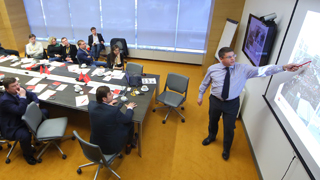
Dialogo sociale
Il dialogo sociale si può definire come un insieme di negoziati, consultazioni, azioni congiunte, discussioni e informazioni condivise che riguardano datori di lavoro e lavoratori. Un dialogo sociale funzionante è uno strumento chiave nella creazione delle condizioni di lavoro, coinvolgendo vari soggetti a diversi livelli, e consente di trovare un equilibrio tra gli interessi dei lavoratori e quelli dei datori di lavoro, contribuendo altresì alla competitività economica e alla coesione sociale.
Recenti dibattiti politici al livello dell’Unione europea hanno evidenziato che, in particolare dopo la crisi del 2008, l’emergere di nuovi dibattiti sulla giustizia sociale, la democrazia e la qualità del lavoro nonché di nuovi modelli per i rapporti di lavoro hanno messo in discussione le tradizionali relazioni industriali e le modalità di dialogo sociale.
Il 5 marzo 2015, trent’anni dopo la storica inaugurazione del dialogo sociale europeo nel castello Val Duchesse di Bruxelles, la Commissione ha posto le basi di un nuovo inizio per il dialogo sociale in occasione di un evento ad alto livello che ha riunito le organizzazioni delle parti sociali di tutta Europa. Il dialogo sociale europeo è uno strumento della politica sociale dell’UE che contribuisce direttamente a plasmare il diritto e le politiche del lavoro dell’Unione.
- Evento della Commissione europea: Un nuovo inizio per il dialogo sociale
- Articolo del blog di Eurofound:Da Val Duchesse a Riga: come rilanciare il dialogo sociale?


















